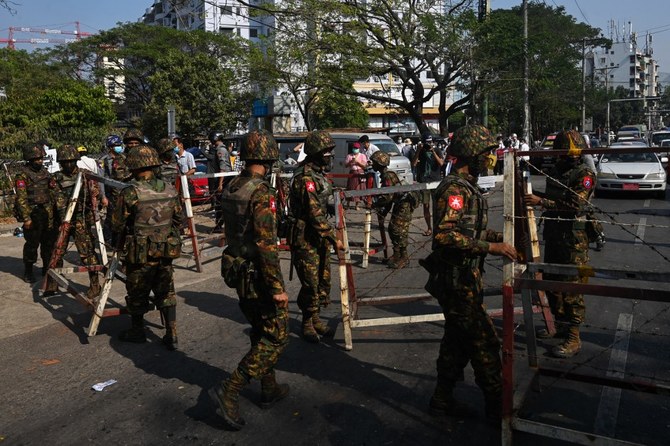Coverage of SAC-M’s 26 November statement in the Arab News
Myanmar’s army is weaponizing starvation against its own people
The Myanmar army, the Tatmadaw, appears to be weaponizing mass starvation in order to beat back resistance to its February coup. The Special Advisory Council for Myanmar, an international group of Myanmar observers, reports that military forces have targeted food supplies, including killing livestock, while also destroying distribution infrastructure.
Popular resistance to the government has been relentless throughout the year, but this recent development suggests that the military is getting desperate, or at least reckless. To be sure, this is by no means a new tactic for the Tatmadaw. They used the same approach against the Rohingya during the 2017 purge.
The use of starvation, particularly as a weapon against a civilian population, has been practiced in Myanmar since at least the 1960s, when the Tatmadaw developed their so-called “four cuts” strategy against the Karen ethnic minority in the southeast of the country.
But using similar tactics against the majority Burmese population would have been unthinkable before February this year. It is an especially risky play when the international community has taken an unambiguous stance in opposing the legitimacy of the coup government, and is instead supporting the civilian opposition, which represents the very people the military is attacking.
Perhaps the junta expects that the consequences it might suffer for this atrocity will be limited. This is, after all, not that different to the tactics deployed by Syria’s Bashar Assad and the Russians against the pro-democracy rebels in Aleppo and Idlib, for example. Going by that precedent, the Myanmar military leadership can expect that at least the Western section of the international community will seek to isolate Myanmar diplomatically and economically, but that they should be able to survive such repercussions relatively unscathed, especially if Russia continues to sell them weapons and China continues to trade.
However, this time around, the global community may have learned something from the catastrophic inaction in Syria. Moreover, the leader of the West, the US, is now governed by an internationalist liberal in Joe Biden. This is an entirely different situation to the Trump era, when the US had neither the legitimacy nor the inclination to impose penalties on even the worst offenders against human rights and international law.
Certainly, international support for the pro-democracy, civilian opposition has been much more robust than the world might have expected after the amoral lack of leadership of the Trump administration.
As things stand, increased support for the opposition, and therefore the rebels, from the West is very much on the table. Deploying the tactics of genocide against an entire people in these circumstances is a much more risky proposition than it would have been even two years ago.
Unfortunately, this does not mean that the international community will step in to end the coup promptly. Certainly these revelations point to an escalation between the Tatmadaw on the one side, and the civilian population and the international community on the other, but the West is not about to intervene in the country as it did in the Balkans in the 1990s.
Still, with these revelations, we are now closer to that kind of confrontation. And with every step down that path, the future for the Tatmadaw leadership looks increasingly precarious. Myanmar’s military should hope that the civilian resistance dwindles quickly. If the pro-democracy movement in the country endures, things cannot possible end well for the junta.
Dr. Azeem Ibrahim is the Director of Special Initiatives at the Newlines Institute for Strategy and Policy in Washington DC and author of ‘The Rohingyas: Inside Myanmar’s Genocide’ (Hurst, 2017)


